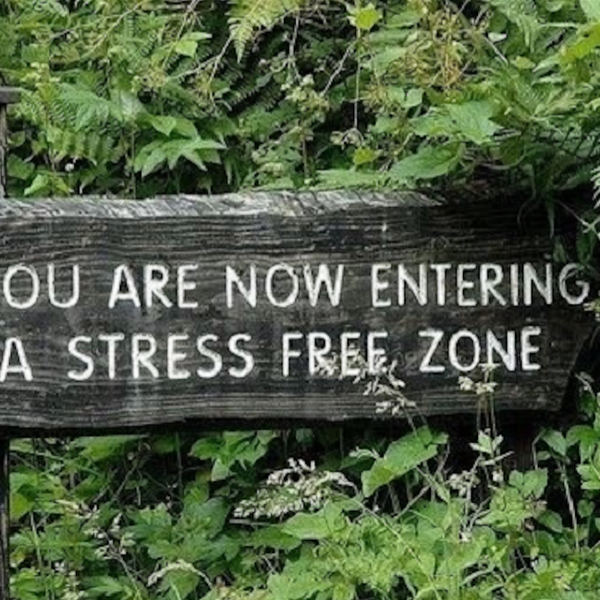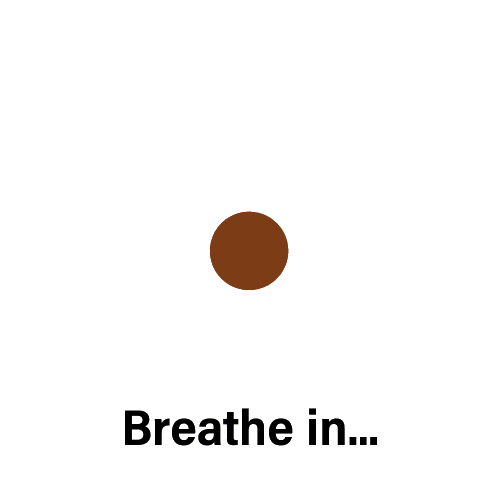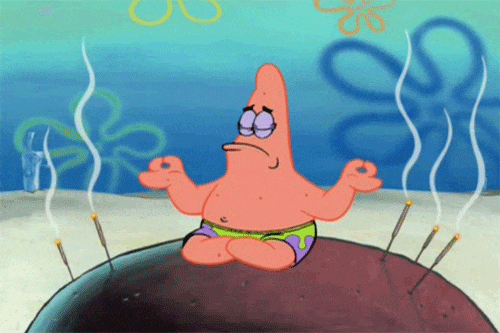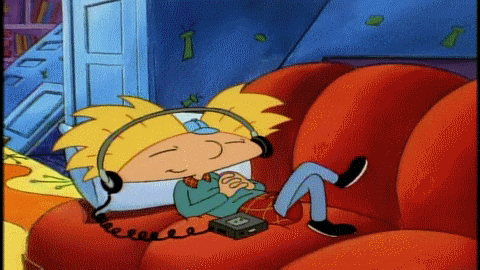In this article, I use the words stress and anxiety almost interchangeably, which is an oversimplification of the implications of both reactions, however because everyone experiences different things when faced with stress or anxiety, I thought it be best to offer support for both. If you experience these reactions, please comment with how you deal with them and how you came to understand the effectiveness of your methods.
1. Deep Breathing
When you get overly stressed out or anxious, you may notice your heart rate increases, which will automatically cause your breath to become shorter and shallower. Hyperventilating is the opposite of a stress-reliever, so taking deep, deliberate breath will help slow your heart rate and make you feel more in control of your stress. Try breathing in through your nose until your lungs feel full, hold for a few seconds, then slowly release through your mouth until your lungs feel empty. Repeat as necessary. This is a good method to start with, but works best when combined with other methods.
2. Meditation
Taking a few minutes out of your day to focus on you is a solid long-term stress-buster. If you have never meditated before, it may be challenging, so starting with one or two minutes is fine. And if your mind wanders, gently reassess where your attention is, without scolding yourself, because being able to clear your mind is a type of brain training that takes time. This method is good over a longer period of time, but can be effective on its own as a stress relief technique.
3. Working Out/ Dancing
Endorphins, or your brain's "feel-good transmitters," are boosted during these activities, and are good for short term and long term relief. In the short term, a rush of adrenaline and endorphins give you the feeling of joy and accomplishment. And, in the long term, exercise results in a healthier body and mind, which can help deal with everyday stress. For some, working out is a stress-inducing activity, so dancing is a good alternative, whether swing-dancing with a local crew or dancing by yourself in your bedroom, it can help to boost your mood.
4. Smiling
This may seem too simple, but if you are feeling the down-in-the-dumps kind of stress, smiling can actually make you feel better. Think about it, when you are feeling good, you smile, and your brain recognizes your muscle movements as a response to happiness, thus when you make them happen, your brain will interpret it as a positive feeling. This is definitely not a good sole form of relief, but feel free to add it to the other methods.
5. Doodling/ Coloring
Those adult coloring books got big for a reason: because they are a calming activity to focus on something other than the source of your stress. This distraction method may not be the most effective for reactive stress, where something is causing you to feel a rush or anxiety, but for a low, solid level of stress, these may be effective. If you tend to be critical of your own doodles, purchasing or printing off coloring pages may be a better option.
6. Get a Hug/Cuddle
If you have someone that you feel safe and comfortable around, getting a tight hug from them or cuddling can help soothe anxious feelings. This works because your body releases a "trust hormone" called ocytocin which lowers blood pressure and the tightness associated with stress and anxiety. This can provide short-term relief, but having someone you know you can lean on can help give you piece of mind in the longer-term.
7. Pamper Yourself
Treating yourself to special occasion pampering like a soothing bath, luxurious meal, or a massage is a distraction method that focuses on you. When life becomes overwhelming and it is hard to get away from your stressors, it is important for you to take some time for yourself in whatever makes you happy. This is a short-term relief method, but focusing on your self-care you can start to develop healthy habits for taking care of your mental health.
8. Call a Friend
Not everyone has a friend nearby to hug or cuddle, but if that trusting relationship is long distance, a call or video chat can help provide you some support. This can be a distraction method, if you just talk about random things, or a more thorough unloading, if you want to talk about whatever is stressing you out. Depending on the situation, this could have varying effects for the short or long term.
9. Play Video Games or Read A Book
These two activities are notorious for sucking their users into alternate universes. While this is a distraction method, it can also help to provide new perspectives to your situation, as you take on the role of a character. Keep in mind that these activities can go on for an indefinite period of time, and it can be easy to let your days pass without dealing with what made you anxious in the first place. Setting a timer that allows you to get relief while also allowing you to function in your daily life, may be a good idea.
10. Listen to Music
Whether you jam out to your favorite album or listen to calming ambient music, that anxious feeling may diminish over time. Different methods will cause different reactions, but the purposeful focus on the sounds, vibrations, and rhythms will provide you with comfort and, it turn, lower your heart rate and breathing. For some, this is an easy method to use in stressful situations, while for others it can cause over-stimulation, so be sure to listen to your body's signals when deciding what works for you.































